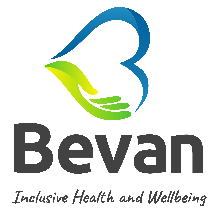Welcome to this intensive where we look at
Preconception Care. This will cover why preconception care (planning of pregnancy) is important, the many issues we need to consider and how we can offer relevant advice and support to women and their partners when they are considering a pregnancy.
Good Preconception Care
Preconception care is defined by the World Health Organization as: “the provision of biomedical, behavioural and social health interventions to women and couples before conception occurs, aimed at improving their health status, and reducing behaviours and individual and environmental factors that could contribute to poor maternal and child health outcomes. Its ultimate aim is to improve maternal and child health in both the short and longterm”.
Planning a pregnancy allows the opportunity for the mother, partner and wider family to consider how their physical, mental and social wellbeing can be optimized before the pregnancy. The health and wellbeing of the mother at conception remains the best predictor of pregnancy and birth outcomes and gives the child the best start in life.
Preconception health, education and care does not ‘belong’ to any specific agency, we all have a role to play; whether it is providing clinical support, signposting to relevant agencies or resources, or raising awareness of the importance of ‘pregnancy planning’.
The intensive will start with a general overview and discuss preconception care with following sections considering more specific relevant issues where bespoke messaging and support is required.
Throughout this intensive you will be provided with some of the information about lifestyle, physical health, mental health which can be improved prior to pregnancy so that you can either make the relevant recommendations or support the potential parents in asking for more specialist help where necessary. Consider at each stage where the opportunities are in your role to support women, partners and their families to support the ambition of women being able to have healthier pregnancies.
Women will require different support at varied times during their lives. This needs to be culturally and socially appropriate for individual needs. In your work with the local communities you will already be aware of the importance of using appropriate language, sensitive conversations, being non-judgmental and supporting individual choices.
This intensive will use the words woman and mother but recognises that not everyone assigned female at birth or with female biological characteristics identifies as a woman and not all women have female biological characteristics.
World Health Organization. Policy Brief: Preconception Care–Maximising the gains for maternal and child health. 2013









